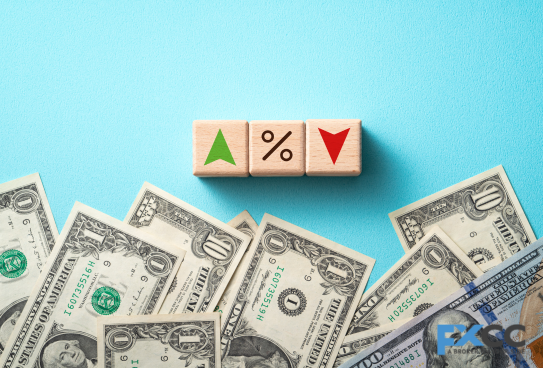Global economic conditions are currently fraught with challenges. Two big problems, high inflation and rising interest rates, are making waves like never before. It’s like a double whammy that’s affecting everyone from everyday folks to big businesses and even entire countries. To understand the complexities of the current economic landscape, let’s examine the key factors at play.

What’s Causing This Mess?
Inflation is basically when prices for stuff you buy, like food, gas, and rent, go up faster than your paycheck.
Consequently, your purchasing power has diminished. It’s like your dollar shrinking.
Interest rates are the cost of borrowing money. When they go up, it gets more expensive to buy a house, car, or even run a business. This can slow down spending and investment.
So, what’s causing this inflation and interest rate hike party? A mix of things:
Supply chain snafus: The pandemic messed up how stuff gets made and shipped around the world, leading to shortages and higher prices.
Pent-up demand: People saved money during lockdowns, and when things opened up, they spent it all at once, driving up prices.
War in Ukraine: This conflict disrupted energy and food supplies, adding fuel to the inflation fire.
Central bank action: To cool down inflation, central banks like the Federal Reserve are raising interest rates to make borrowing more expensive.
How It’s Affecting You
You’re probably feeling the pinch of higher prices at the grocery store and gas pump. Your rent or mortgage might be going up too. And if you’re thinking about buying a big-ticket item, it’s getting pricier.

On the flip side, if you’re saving money, you might be earning a little more interest on your deposits. But this is usually outweighed by the higher cost of living.
The Impact on Businesses
Businesses are also facing challenges. Rising costs for materials, labor, and energy are eating into their profits. Higher interest rates make it more expensive to borrow money for expansion or investment. This can slow down business growth and job creation.
Global Market Mayhem
The combined effect of high inflation and interest rates is causing ripples across the globe. Stock markets can be volatile as investors worry about company profits and economic growth. The value of currencies can fluctuate, affecting trade and investment.
Emerging economies are particularly vulnerable. They often rely on borrowing to fund growth, so higher interest rates can make it more expensive to do business.
What’s Next?
Nobody has a crystal ball, but it’s clear that the road ahead is bumpy. Central banks are walking a tightrope. They need to control inflation without causing a recession.
For individuals, it’s important to budget carefully, look for ways to save money, and consider delaying big purchases if possible. Businesses need to adapt to the new economic reality, find ways to cut costs, and explore new markets.
The global economic system is experiencing unprecedented volatility. It’s a challenging time for everyone, but with careful planning and adaptation, it’s possible to weather the storm.
FAQs:
What is driving the current inflationary surge?
Several factors are contributing to the recent spike in inflation, including supply chain bottlenecks, heightened consumer spending, and global geopolitical tensions.
How do central banks counteract inflation?
To curb inflation, central banks typically implement monetary policy measures such as increasing interest rates. These actions aim to reduce economic activity and, consequently, price pressures.
What impact does inflation have on everyday consumers? Rising inflation erodes purchasing power, making it more challenging for consumers to afford essential goods and services. This can lead to reduced spending and a decline in overall living standards.


